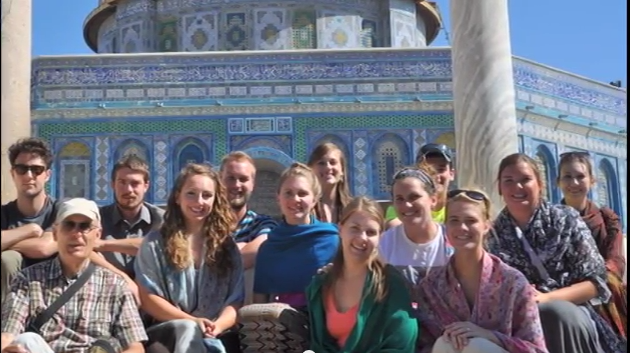
As the Iowa Caucus occurred recently and students prepare to vote in the 2016 Election, the Students for Middle East Peace held an informational night Jan. 28.
Though the meeting focused a lot on what is currently happening in the Middle East with Syria and Iraq, the students felt it was important to show how it is reflected in the United States.
One of the students who presented was sophomore Megan Kraus, who says she feels as though the event was able to inform students.
“I think that this helped to educate; we’re all over 18 and we will all be voting,” Kraus says. “If nothing else, it helps students to start on researching the different politicians, and educate them on their policies and what they want to do in Syria, as well as how that will effect America.”
The event consisted of several different presentations that focused on what is currently occurring and how the current problems arose. Senior Jordyn Williams says the current issues has led to a world wide issue.
“Where we are right now is that there is a major Civil War going in Syria, and it’s evolved more in a Civil that major world powers are involved, and it’s now a more proxy war,” Williams said. “The larger countries getting what they want to work in their favor. We don’t necessarily know all the facts but I think it’s important to keep in mind that America is not always ‘right’ or ‘good’ because everyone is in it for themselves.”
Williams says that it is important that people are doing research and staying informed.
“You cannot always go off the latest news story because there’s normally many news stories before then,” Williams says. “It has become something that a lot of people have very strong opinions on.”
Junior Alex Moellering focused his part of the presentation on the history of Syria, which he believes is what has led up to the current Civil War in Syria.
“There are two major Islamic cultures; the Sunni and the Shiite, and anytime that you have two conflicting ideas, there’s going to be tension,” Moellering says. “When a minority got control and began making changes, people were upset, which led to a lot of civil rights protests. Eventually, the tension just built up in Syria.”
Moellering says it is also important to remember that the United States plays a role in all these issues, especially ISIS.
“With ISIS, they rose up out of something we did,” Moellering says. “When we left Iraq, we left a lot of military equipment there, which allowed them to take that equipment and put it to use.”
